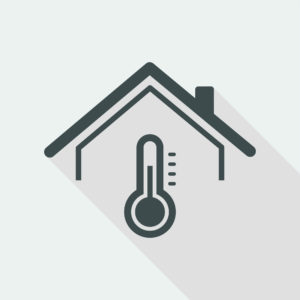
Whether you’re purchasing or building a new home or need to upgrade your current heating system, installing a new system in your home is an expensive investment so it’s important to do your research. To make the process easier, we’ve compiled how each system works and the advantages and disadvantages of each to help you decide which is the best option for you home.
Types of Heating Systems
There are three main types of heating systems: boilers, furances, and heat pumps. The New England winters can be extremely cold so it’s likely you already have one of these three systems already installed in your home. So the next question is, do you stick with what you know or do you upgrade to a new system?
Boilers
Boilers heat a home with steam and hot water, unlike a furnace, which warms a house using air.
HOW THEY WORK
The water in the boiler is heated and circulated with pumps and is boiled until it turns to steam. Once the water is boiled into steam, it will pass through the radiators and baseboards within the house to heat the rooms. The steam then turns back into water, returns to the boiler, and goes through the process again. If a home utilizes a boiler heating system, the heating fuel is typically gas or oil.
ADVANTAGES
- A more allergenic way to distribute heat through your home
- Increasingly energy efficient – just check for a high AFUE
- Can be controlled individually by room and take up less space than a furnace and duct work
DISADVANTAGES
- High installation costs
- Boilers are only for heating purposes and you’ll need to install a seperate air conditioning system
- Not as popular as furnaces are, so not all companies will service them
Furnaces
Furnaces warm your home by heating up the air and redistributing it throughout your house.
HOW THEY WORK
Furnaces warm the rooms in your home by forcing hot air through air ducts and entering the individual room through registers. They work with gas, oil, and electricity fuel sources and depending on the type of furnace you have, the AFUE is typically between 76% and 96%.
ADVANTAGES
- Most popular type of heating system, making it easy to find a professional to perform installations, maintenance work, and repairs
- Have an average AFUE rating of 80%, making them very efficient
- Can easily be retrofited for central air-conditioning if they haven’t already been done to do so
DISADVTANGES
- Require ductwork to push the warm air throughout your home – if you don’t already have ductwork put in place, it could be expensive to install
- Typically utilize one thermostat to adjust the termperature in your home but can be split between multiple zones, which can get expensive
Heat Pumps
A two part system that both heats and cools your home.
HOW THEY WORK
Heat pumps use the air from outside to heat your home in the winter and displace hot air from inside to outside of your home in the summer to keep it cool. There are also ductless options if your home doesn’t have ductwork installed.
ADVANTAGES
- More energy efficient than boilers and furnaces
- Are extremely versatile
- Reduce greenhouse gas and other air emissions
- Long lifespan
- Require less maintenance
DISADVANTAGES
- Aren’t best suited for homes located in areas that hit freezing and below-freezing temperatures as well as temperatures over 100 degrees
- Can be expensive to install
Do you want to learn more about our heating system options? Give us a call today at (781) 639-9222.

